On the morning of March 23, the Sapa Town People's Committee organized a seminar titled "Sapa Night Economy Development – Current Status and Solutions" to assess and evaluate the potential while exploring solutions for developing the local night economy.
The seminar was attended by Sapa town leadership, scientists, experts, and speakers from research institutes, universities, relevant departments and sectors, as well as representatives from businesses and investors in the tourism, economics, and technology sectors.
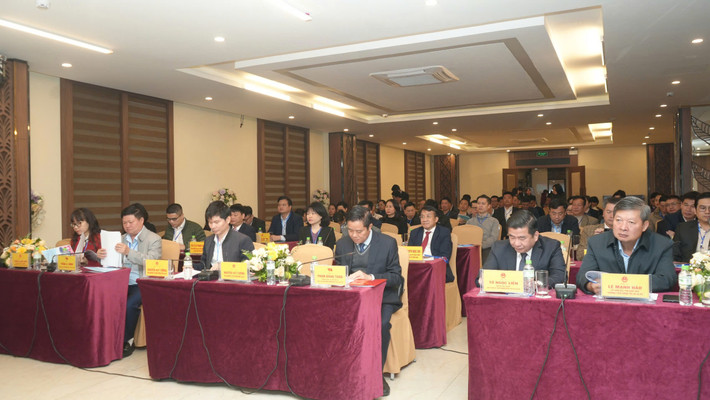
In his opening remarks, Mr. Phan Dang Toan, Party Secretary and Chairman of the Sapa Town People's Council, emphasized the importance of the night economy in promoting tourism development and improving the lives of local residents. He affirmed: "Sapa is not only an attractive daytime tourist destination but also has strong potential for nighttime development. Building a systematic and sustainable night economy model will contribute to enhancing local competitiveness, creating more employment opportunities, and promoting economic growth."
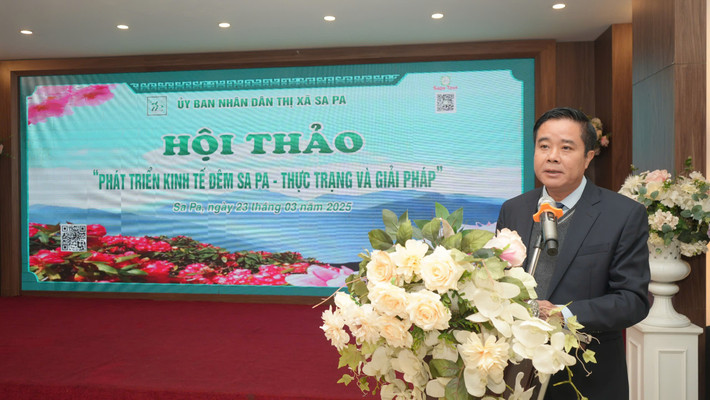
At the seminar, delegates discussed strategies for developing Sapa's night economy. With its strong tourism appeal, Sapa is expected to maximize this model to increase economic benefits, enhance tourist experiences, and create additional employment opportunities for the local community.
Speaking at the seminar, Associate Professor Dr. Nguyen Ngoc Son, Vice Rector of the Public Economics and Management University, emphasized: "The night economy is not simply about extending business hours, but represents a modern economic development strategy that adds value to the tourism and service industries. Cities worldwide have effectively leveraged this model to increase income, stimulate economic life, and achieve sustainable urban development."
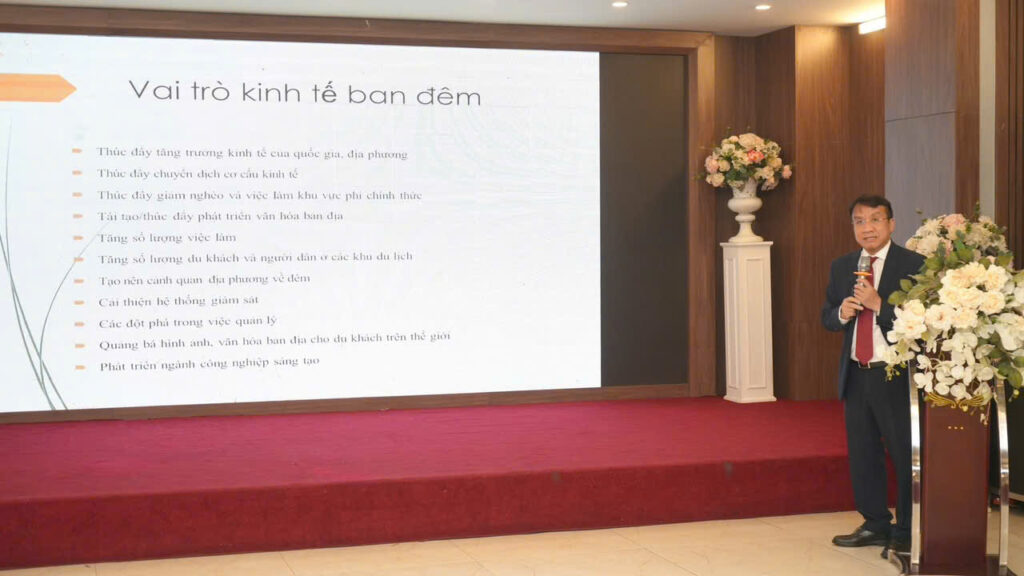
However, according to some delegates, despite the night economy's significant potential, without effective management, it could lead to various negative consequences such as security and order disruptions, noise pollution, and urban infrastructure overload.
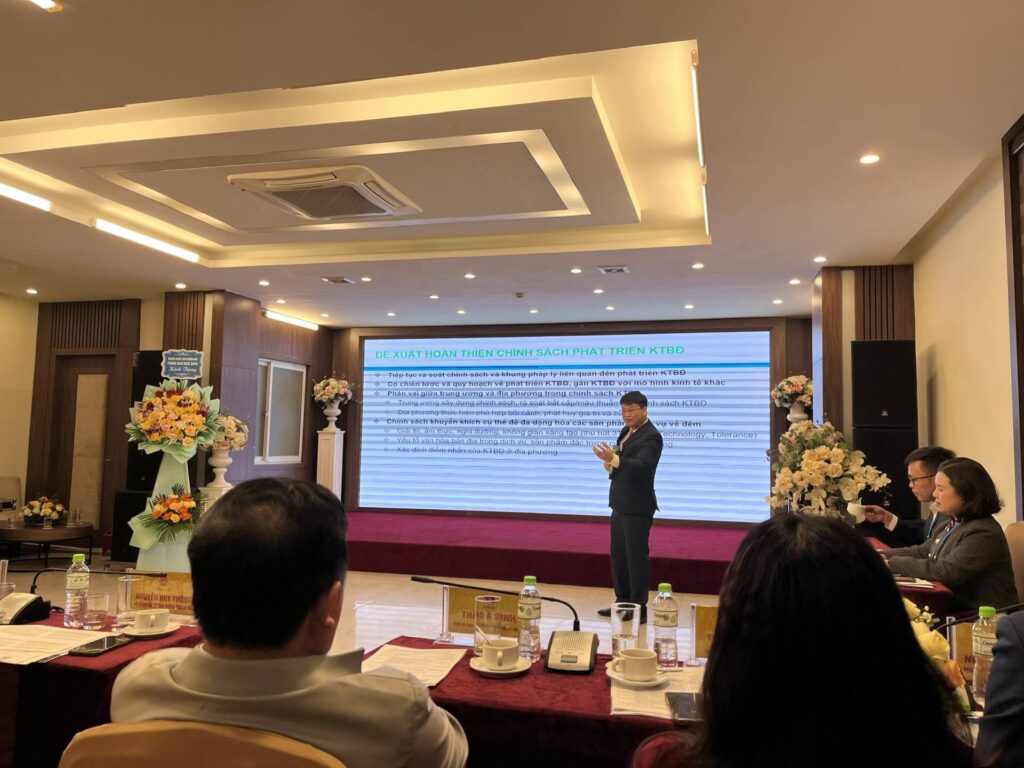
Associate Professor Dr. Le Quang Canh, Director of the Institute for Sustainable Development at the National Economics University, suggested that Sapa needs a long-term strategy to "Awaken the Night – Illuminate the Economy" and proposed a 3T tourism model with three priority actions: Establishing clear management mechanisms to ensure security, environmental protection, and sustainability; Encouraging investment in new tourism services, particularly high-value-added nighttime entertainment; and Applying technology and smart tourism to optimize night economy activities and enhance tourist experiences.

Sharing at the seminar, Associate Professor Dr. Bach Ngoc Thang, Deputy Director of the Institute for Sustainable Development at the National Economics University, noted that cities successful in developing night economies typically have systematic planning and close coordination between government and businesses. This presents challenges for Sapa in how to exploit the night economy while ensuring sustainability and preserving local cultural identity.
Agreeing with the delegates' opinions, Associate Professor Dr. Tran Thi Ngoc Quyen, Deputy Director of the Innovation Research Institute at the Foreign Trade University, further emphasized: "The night economy should not be limited to culinary or entertainment activities but needs to be approached from the perspective of cultural industries and creative economy. Sapa has significant advantages in indigenous culture, but has not yet effectively exploited these to create nighttime tourism products with strong local characteristics. Night economy development needs to be combined with heritage conservation, building open cultural spaces, and developing distinctive souvenir products to increase economic value." Associate Professor Dr. Tran Thi Ngoc Quyen also stated: "Developing the night economy requires interdisciplinary thinking."
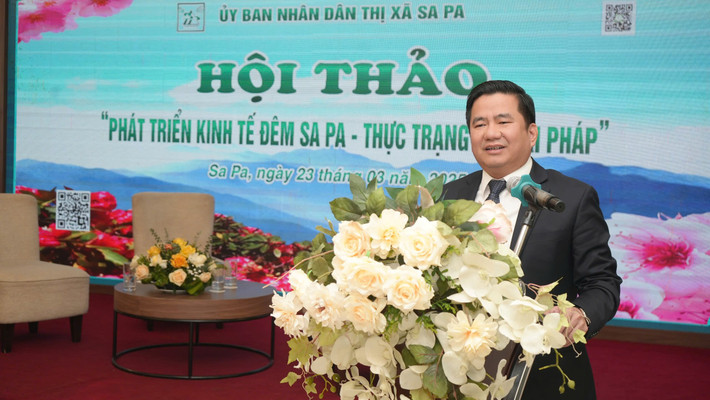
Speaking at the seminar, Mr. To Ngoc Lien, Chairman of the Sapa Town People's Committee, indicated that while developing Sapa's night economy has potential, there remain significant barriers, including limited urban planning, with current night economic activities concentrated mainly in the central area and lacking connectivity with surrounding regions; impacts on security, order, and environment, as night economy development may lead to issues in public space management, noise, and waste; and lack of service product diversification, with activities mainly focused on food and shopping, lacking distinctive entertainment services.
At the seminar, delegates also noted that given these opportunities and challenges, without strategic steps, Sapa could miss the opportunity to become a leading night economy destination in Vietnam.
Some images from the seminar:
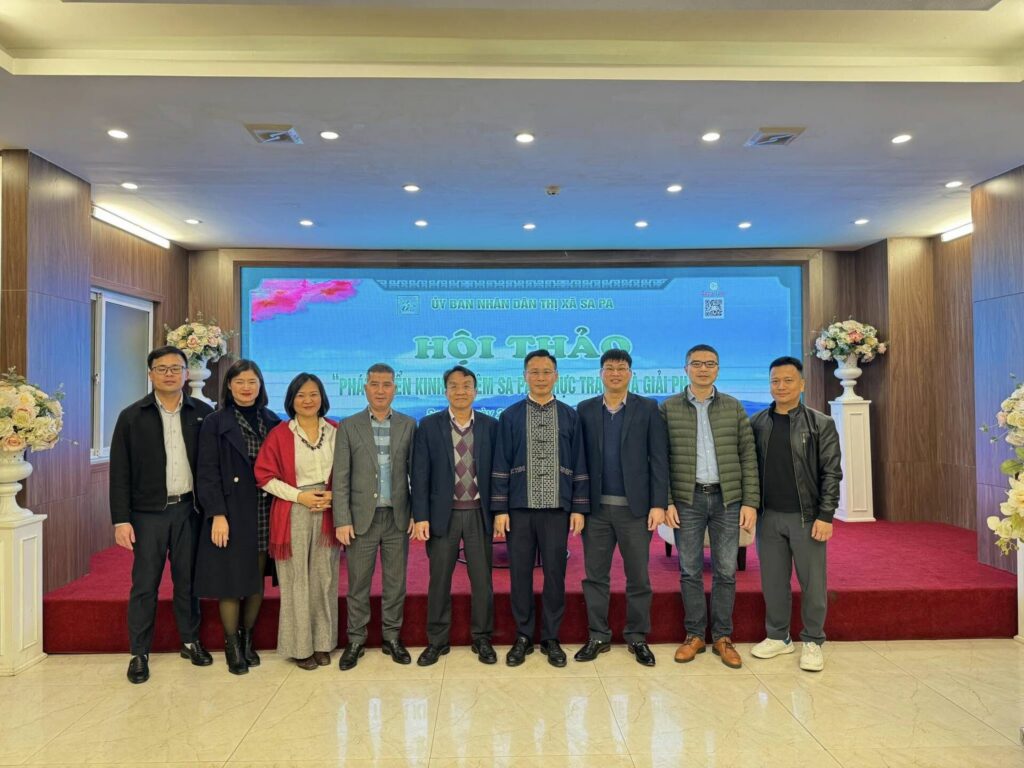
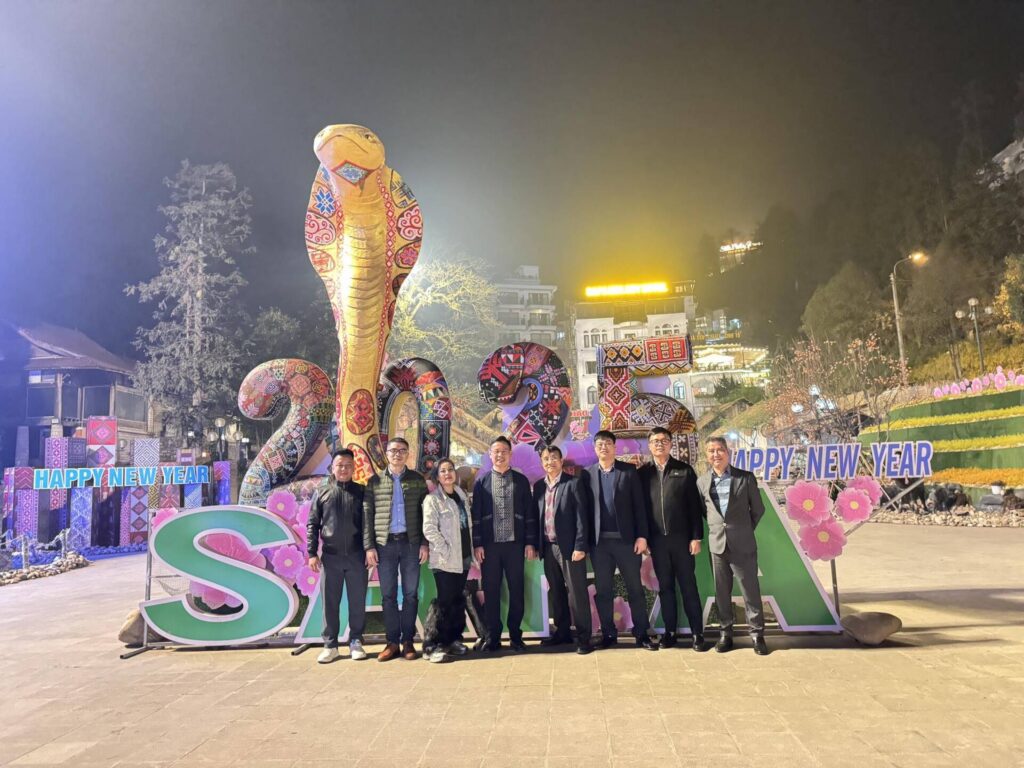
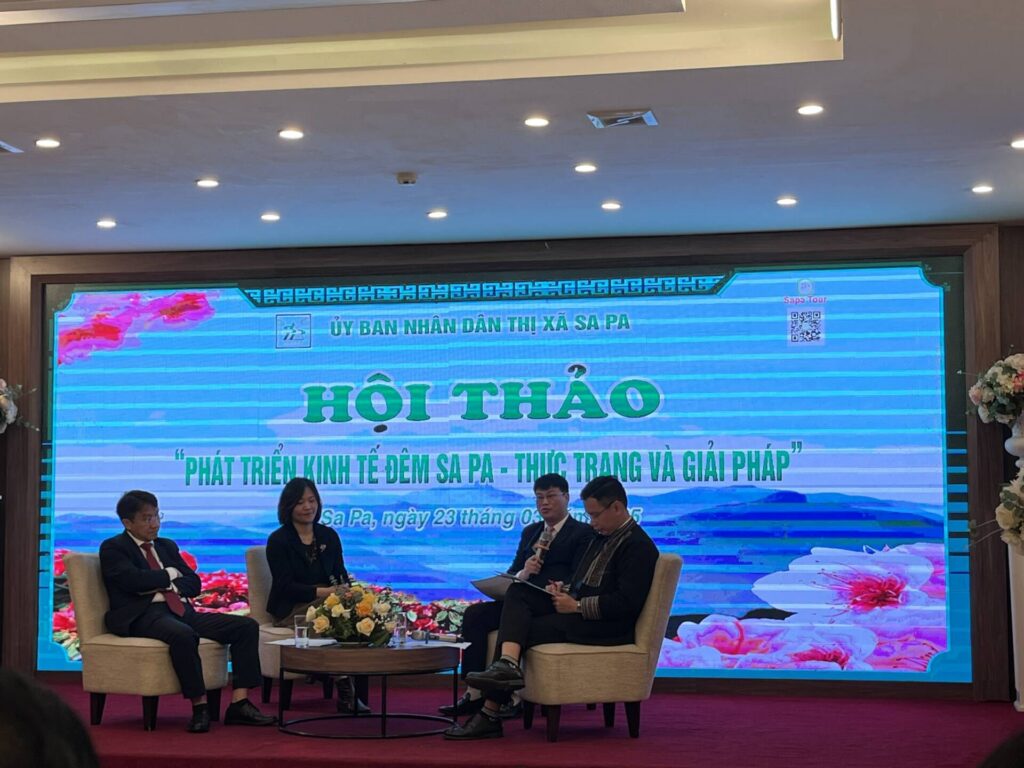
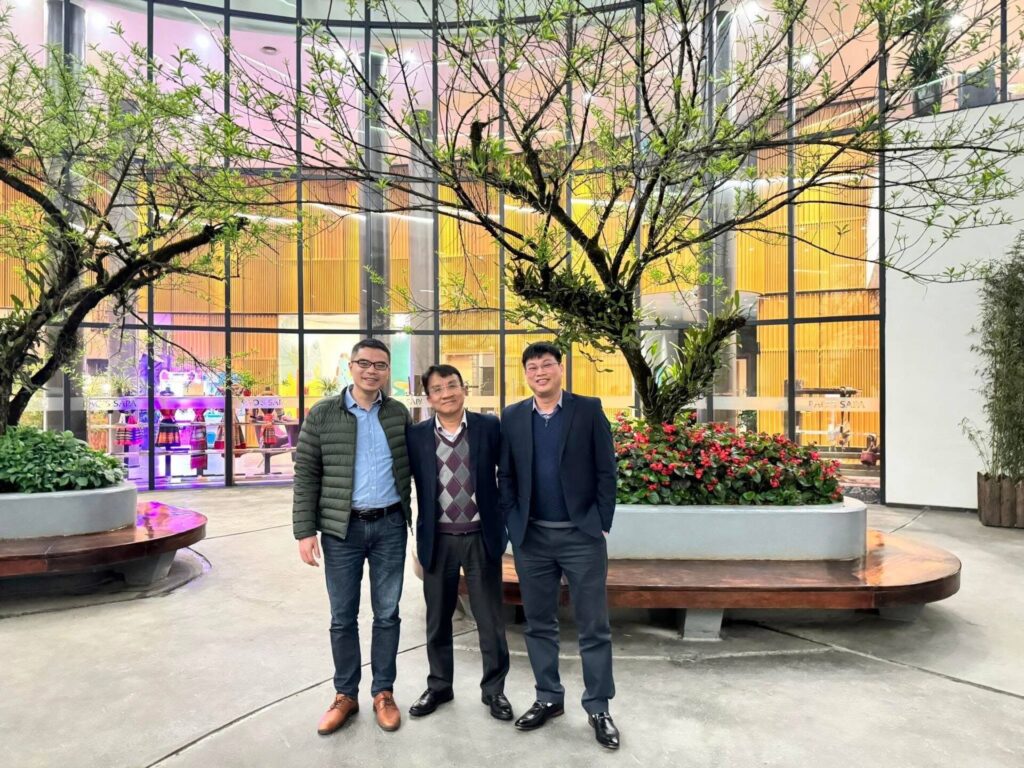
Source: Nhan Dan Newspaper, Institute for Sustainable Development
